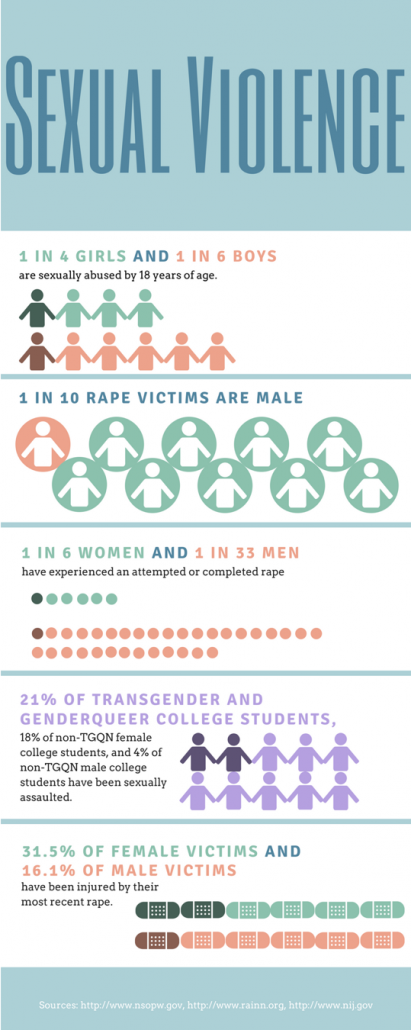When sexual allegations recently came out against author Sherman Alexie, I was devastated. Alexie is someone I respect, whose work I enjoy very much. To hear that he preyed on innocent women is shocking.

The most recent edition of Sojourners Magazine includes an anonymous letter to the editor that says, “But there is one voice that is not heard too often. It is that of sexual violence against men by male authority figures. I suspect there are many men out there who trusted a male authority figure and were assaulted. We are hurting.”
This brave, unnamed writer is correct. While, statistically, sexual assault is more often committed against women than men, that is not always the case.
One in 6 boys are sexually assaulted before they are 18 years old. One in 33 American men have experienced rape in their lifetime, and 1 in 10 rape victims are men. 18-24-year-old men who enroll in college are about 5 times more likely to experience sexual violence than their peers of the same age who do not enroll in college.
While these numbers seem small in the face of the many more women who have faced sexual violence, they should not be dismissed. It is estimated that 2,780,000 men have been the victims of attempted or completed rape since 1998. That is 2,780,000 individuals who have been treated with grotesque disrespect and violence in the past 20 years. These individuals, as the anonymous writer to Sojourners says, are hurting. They have stories that they should be encouraged to share. When they choose to share those stories, their bravery should be applauded, and their voices listened to.
In short, they should be treated with the same respect we have been demanding for every other victim of sexual aggression and assault.
Likewise, we must recognize that not all perpetrators of sexual harassment are men. According to the CDC, 28.5 percent of men have experienced some form of domestic abuse, both within heterosexual and same-sex relationships.
When #MeToo accusations were just beginning to surface, I remember hearing Jennifer Lawrence speak out about being forced to pose for nude photographs by a female producer who then shamed her body. More recently, during the auditions for the current season of American Idol, 19-year-old Benjamin Glaze was the recipient of an unwanted kiss from judge Katy Perry. My heart breaks to hear him speak about how he was saving his first kiss for someone special, and instead it was coerced by a celebrity who held more power than he did. A quick search on social media with #MenToo reveals many more stories like these ones.
Please do not misunderstand me. I’m not saying that the stories of male victims are more important than those of female victims, nor am I saying that accusations against male perpetrators should not be taken seriously. To the contrary, I am saying that we should honor and take seriously the stories of all victims of all forms of sexual assault, no matter their gender. And I hope and pray that by honoring and listening to our brothers, sisters, and siblings, together we can all move away from cycles of abuse and toward healing.
If everyone who reads and appreciates FāVS, helps fund it, we can provide more content like this. For as little as $5, you can support FāVS – and it only takes a minute. Thank you.
[give_form id=”53376″ show_title=”true” display_style=”button”]








